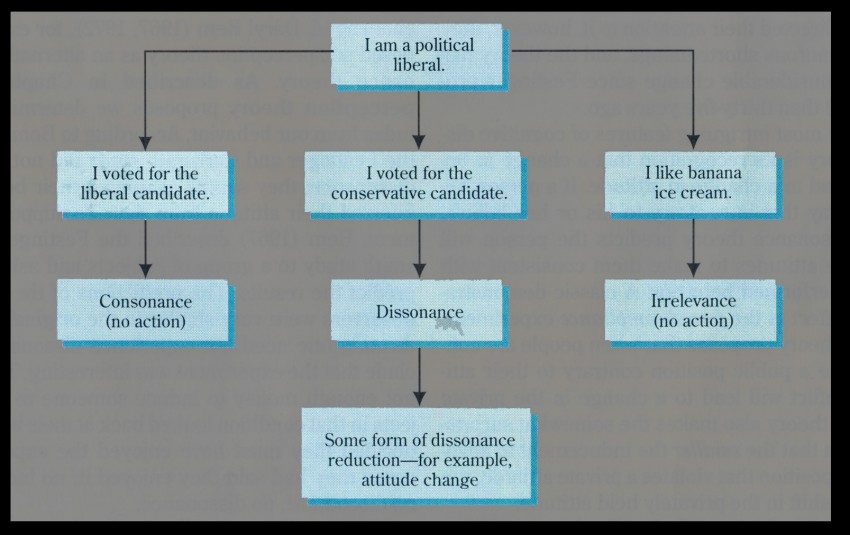“Cognitions must be relevant before dissonance theory is applicable. For example, “I’m a thoughtful person” and “It’s a nice day today” would probably be considered irrelevant—that is, one cognition does not imply anything about the other. Therefore, dissonance theory would not be applicable. In contrast, “I’m a thoughtful person” is relevant to “I forgot my father’s birthday” because the first relates to the second in a psychological sense; therefore dissonance theory is applicable.”
Social Psychology in the 90s

EXAMPLES
–I consider myself a “green” person and I am concerned about the environment.
–Sometimes I will jam a glass jar or a plastic food container into the trash can, and cover it up with other garbage, effectively hiding it from myself, because I am too tired to rinse it out and recycle it.
dissonance
–I avoid movies that attract hecklers, as well as their fans, who like to snicker in the dark.
–I don’t really get jazz music.
irrelevance
–I am confused by costumes and other clothing on pets.
–I do not have pets, and if I did, I would not dress them.
consonance
The more interesting part of this whole theory is the application. As I understand it, if there is dissonance, the human brain will automatically seek to change one of the beliefs/actions, in order to establish consonance. Or it might just go into denial about the truth of one of the beliefs/actions, and lie to itself. But it will make the dissonance go away, one way or another. It’s wily that way.
Of course it’s just a theory.